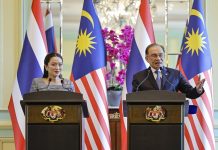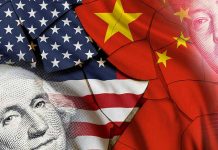China topped the list of economies looking to invest in Thailand for the first time last year, overtaking Japan as its main source of foreign direct investment thanks to belt and road-linked projects, overspill from the US-China trade war and Thai government incentives.
Applications from China – valued at 262 billion baht (US$8.5 billion) – accounted for more than half of all foreign direct investment applications, according to Thailand’s Board of Investment. Japan’s applications, meanwhile, were valued at 73.1 billion baht, followed by 36.3 billion baht of applications from Hong Kong. However, the vast majority of Chinese investment agreed upon last year was linked to a 224 billion baht high-speed rail project connecting the airports at Suvarnabhumi, Don Muang and U-tapao. Contracts for the project were signed in October between the Thai government and a consortium whose members include the Chinese state-owned China Railway Construction Corporation. Siwat Luangsomboon, an analyst at Kasikorn Research Centre, noted that such major infrastructure projects would “not happen every year” and that before the deal was signed, Japanese investment had actually exceeded that from China in the first nine months of 2019.
Japan has been the largest investor in Thailand for more than five decades, and its investments have subsequently “matured”, according to Pavida Pananond, a lecturer at Thammasat Business School in Bangkok. Chinese investment, meanwhile, is at a relatively “early stage of development” so is “likely to record a faster growth rate and larger initial flows”, she said. “While annual flows of Chinese investment may exceed that of Japan this year, thanks partly to the relocation of Chinese firms [hit by the trade war with the US] and incoming Chinese investment related to the high-speed train projects, it will take a while for accumulated Chinese investment to exceed that from Japan. China has sought to invest in a number of sectors promoted by the Thai government – such as cars, smart electronics, biotechnology, logistics and aviation – attracted by tax rebates and deductions, preferential visa policies and “a lot of deregulation”, Kobsak Pootrakul, secretary to Thailand’s Council of Economic Ministers, told a press briefing earlier this month.























